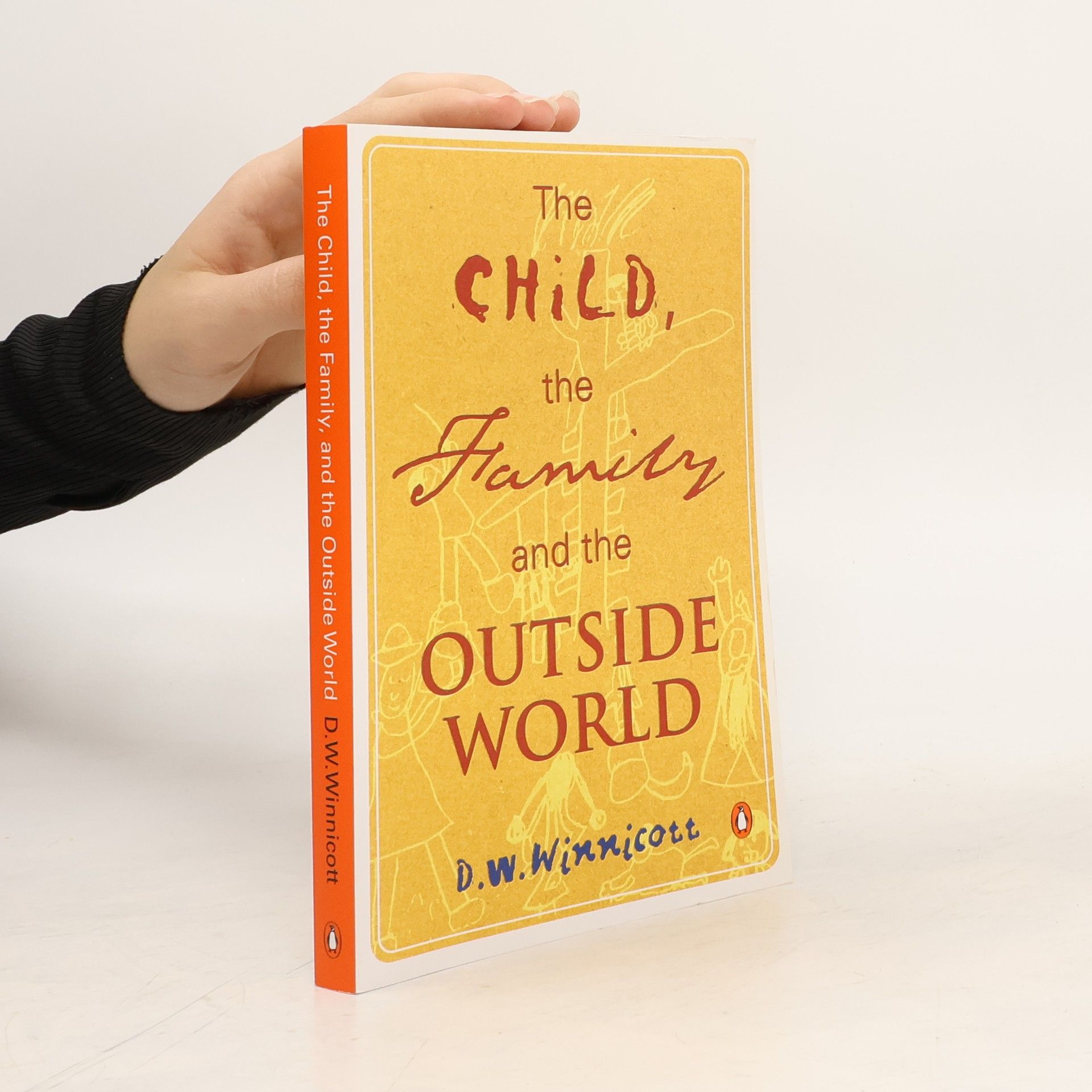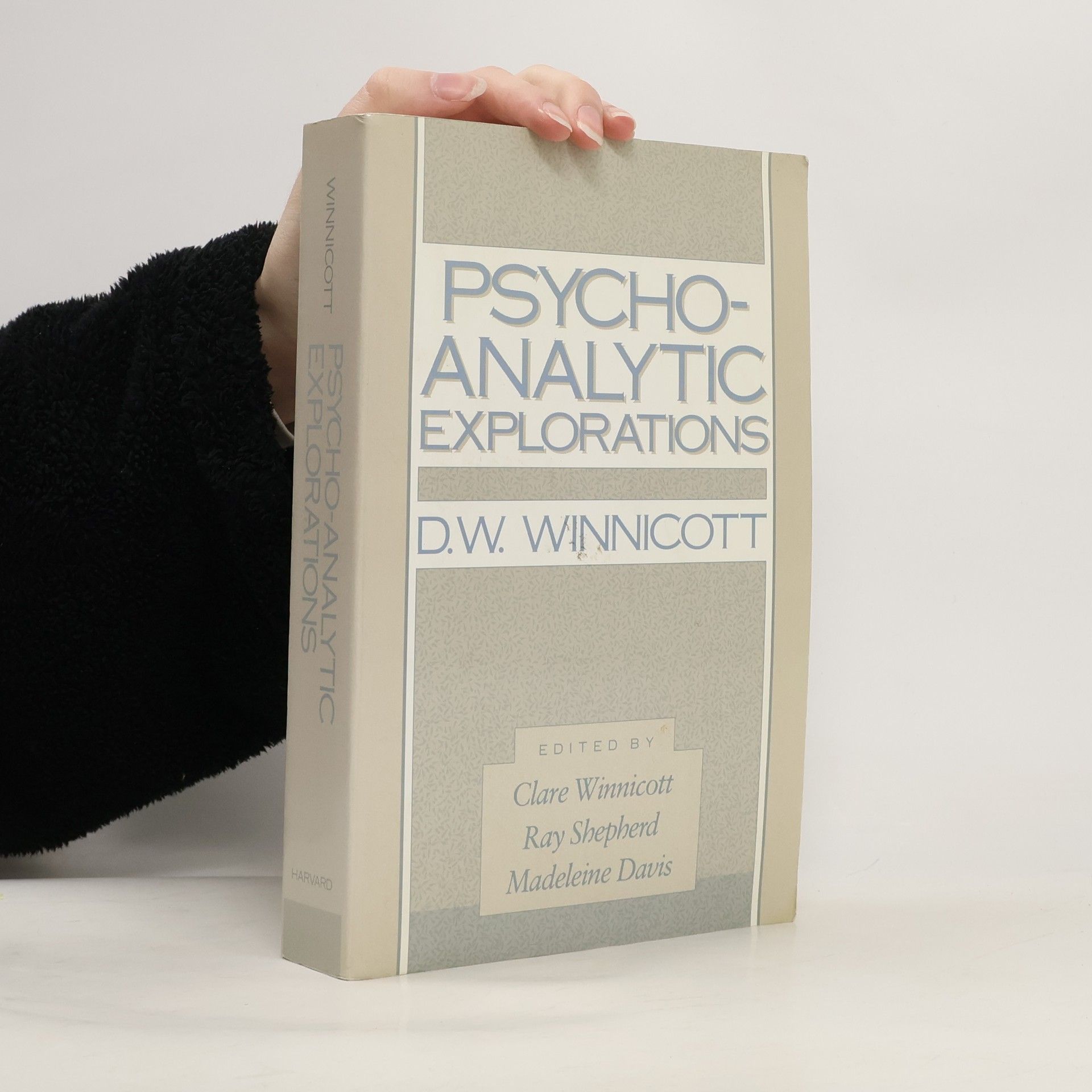Donald Winnicott (1896-1971) was trained in paediatrics, a profession that he practised to the end of his life, in particular at the Paddington Green Children's Hospital. He began analysis with James Strachey in 1923, became a member of the British Psychoanalytical Society in 1935, and twice served as its President. He was also a fellow of the Royal College of Physicians and of the British Psychological Society. The collection of papers that forms The Maturational Processes and the Facilitating Environment brings together Dr Winnicott's published and unpublished papers on psychoanalysis and child development during the period 1957-1963. It has, as its main theme, the carrying back of the application of Freud's theories to infancy. Freud showed that psycho-neurosis has its point of origin in the interpersonal relationships of the first maturity, belonging to the toddler age. Dr Winnicott explores the idea that mental hospital disorders relate to failures of development in infancy. Without denying the importance of inheritance, he has developed the theory that schizophrenic illness shows up as the negative of processes that can be traced in detail as the positive processes of maturation in infancy and early childhood.
Donald Winnicott Livres






This work illuminates the emotional and psychological issues in raising young children.
Home is Where We Start from
- 288pages
- 11 heures de lecture
Brings together some of the author's works contributing to our understanding of the minds of children. This title includes essays that range in topic from 'The Concept of a Healthy Individual' and 'The Value of Depression' to 'Delinquancy as a sign of Hope'.
The collected letters of Donald Winnicott, a central figure in British psychoanalysis in the first post-Freud generation. They provide a vivid picture of Winnicott's ideas and personality. Reissued 1999.
Psycho-Analytic Explorations
- 618pages
- 22 heures de lecture
The editors of The Winnicott Trust have assembled into one volume ninety-two works by the brilliant writer, theoretician, and clinician. This fascinating volume includes, among many important topics, critiques of Melanie Klein's ideas and insights into the work of other psychoanalysts, as well as gems of thought on such concepts as play in the analytic situation, the fate of the transitional object, regression in psychoanalysis, and the use of silence in psychotherapy.
The Child, the Family, and the Outside World
- 240pages
- 9 heures de lecture
Covering child development, this work explores problems of the only child, of stealing and lying, shyness, sex education in schools and the roots of aggression. It provides insight into child behaviour and parental attitudes.
Playing and reality
- 169pages
- 6 heures de lecture
Acknowledgements. Introduction. Transitional Objects and Transitional Phenomena. Dreaming, Fantasying, and Living: A Case-history Describing a Primary Dissociation. Playing: A Theoretical Statement. Playing: Creative Activity and the Search for the Self. Creativity and its Origins.
Deprivation and Delinquency
- 261pages
- 10 heures de lecture
D. W. Winnicott was one of the giants of child psychiatry and psychoanalysis. He argued eloquently for an increased sensitivity to children, their development and their needs.
Human Nature
- 189pages
- 7 heures de lecture
Winnicott's ideas are scattered through numerous clinical papers and popular expositions. He made only one attempt to write an overview of his ideas, and this is it.
Represents a decade of writing from a thinker who was at the peak of his powers as perhaps the leading post-war figure in developmental psychiatry. This book chronicles the complex inner lives of human beings, from the first encounter between mother and newborn, through the 'doldrums' of adolescence, to maturity.
